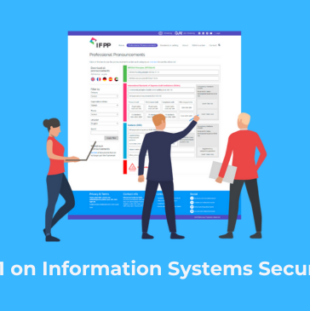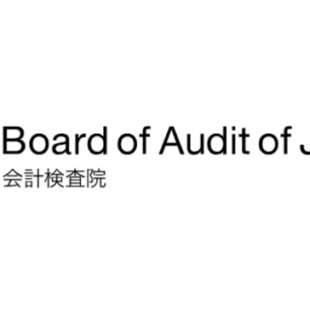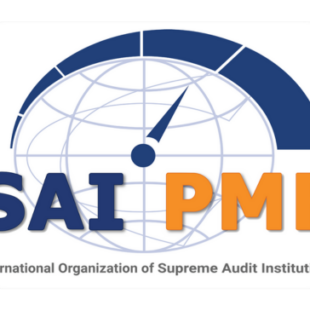ClimateScanner Global Call: Supreme Audit Institutions unite at UN headquarters to assess national climate action and tackle climate change

By: Tribunal de Contas de União, Department of Communications
On March 25, the President of the Brazilian Federal Court of Accounts (TCU) and Chair of the International Organization of Supreme Audit Institutions (INTOSAI), Minister Bruno Dantas, participated in the opening of the ClimateScanner Global Call: Engaging Supreme Audit Institutions in Assessing National Climate Action. The technical meeting, which ended on March 26, was held at the United Nations (UN) headquarters in New York, in partnership with the TCU and the United Nations Department of Economic and Social Affairs (UN-DESA).
The ClimateScanner Global Call brought together approximately 200 participants, including representatives from around 70 countries from the government audit community and climate change experts. In addition to fostering discussion of joint solutions, the technical meeting signalled the beginning of the implementation phase of ClimateScanner.

The ClimateScanner tool will enable the extraction of a web-based panorama of government actions being taken by different countries to combat climate change. The collecting of data by the Supreme Audit Institutions is currently underway, and the results will be presented in November at the 2024 United Nations Climate Change Conference (COP29).
In his opening speech, President Bruno Dantas thanked the United Nations Department of Economic and Social Affairs (UN-DESA), whom he described as a longstanding partner and fundamental supporter of the ClimateScanner project. In this regard, he emphasized the critical significance of collaboration among diverse institutions in addressing complex and global challenges.
The President stated that climate change has emerged as the paramount global challenge of our time and that governments have a key role in solving this problem. He emphasized that SAIs hold a unique position to promote the action of national governments to combat climate change, as they can improve the efficiency, accountability, effectiveness, and transparency of public administration.
Dantas briefly presented the motivation for creating the “ambitious tool”, ClimateScanner, developed by the TCU with the support of the INTOSAI Working Group on Environmental Auditing (WGEA). He recalled that the tool was launched during the XXIV International Congress of Supreme Audit Institutions (INCOSAI), held in Rio de Janeiro in 2022. According to the President, the main purpose is to develop and apply a rapid review tool that accesses the actions of national governments to combat the climate crisis through three pillars: governance, finance, and public policies.
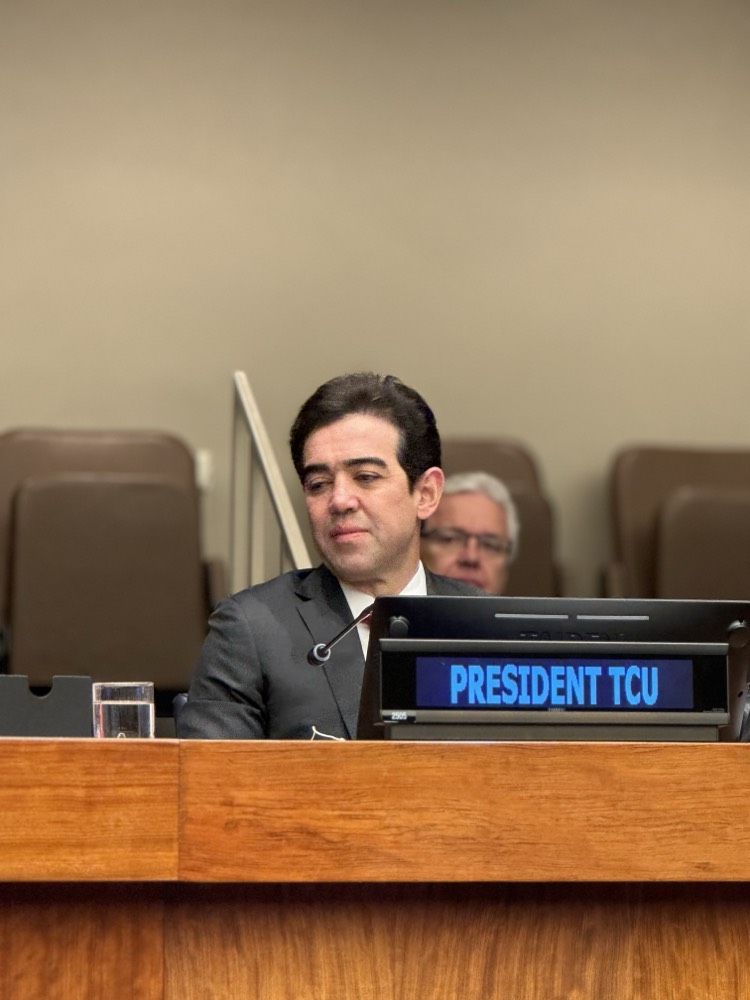
The President of INTOSAI explained that over the course of the two-day event, SAIs had the opportunity to thoroughly comprehend the methodology, including its most pertinent aspects and potential outcomes. Furthermore, he underscored that SAIs could grasp the advantages of engaging in the ClimateScanner project and play a part in more effectively addressing the world’s climate crisis.
Dantas advocated for the full engagement of the international government auditing community to ensure that ClimateScanner reaches its full potential, inviting the top-level officials to endorse the tool and actively take part in the evaluation process. Capping off his support for the ClimateScanner project, he signed the Global Call attendance book and extended an invitation to top officials from other countries’ institutions to also sign the book, demonstrating their commitment to mitigating the effects of climate change.
The opening ceremony was also attended by the Permanent Representative of Brazil to the UN, Ambassador Sérgio Danese, the Assistant Secretary-General for UN-DESA, Navid Hanif, and the Director General and Authorized Representative of the INTOSAI Secretary General, Ronald Roedl.
Following the opening ceremony, a lecture commenced on the topic “Setting the stage for discussions, emphasizing climate responsibility, and underlining the importance of monitoring and evaluating climate action by governments at the national level.” The speech was given by the Deputy Permanent Representative of Belize to the UN, Janine Coye-Felson, from the Melbourne Climate Futures, University of Melbourne. The moderation was done by the Chief of the Institutions for the Sustainable Development Goals, Division for Public Institutions and Digital Government, UN-DESA, David Le Blanc.
The technical sessions commenced promptly thereafter. The first, on “Current INTOSAI Initiatives on Climate Change,” was attended by the Vice President of TCU, Minister Vital do Rêgo, and the TCU Chief of the Audit Department for Agriculture, Environment, and Economic Development, Hugo Chudyson Araújo Freire. During that session, the Minister underscored the collaborative efforts of nations and institutions in addressing climate change through their involvement in ClimateScanner. “I share with enthusiasm the vision that, at some point between this year and the next, we can make ClimateScanner accessible to any citizen worldwide,” said the Vice President of TCU.
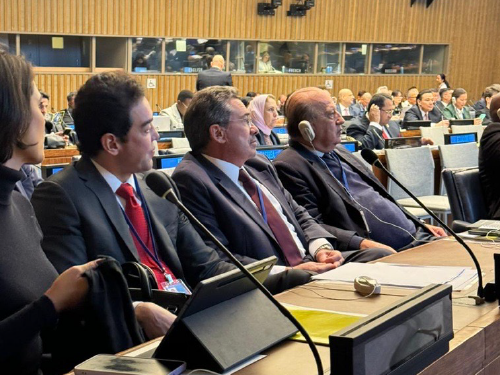
Vital do Rêgo thanked UN-DESA and reinforced the important role of the UN in this process. “The United Nations plays a central role, using its extensive network and credibility to identify and promote nations that demonstrate a genuine commitment to environmental conservation,” commended. “This collective effort reflects the global commitment of institutions to sustainable development,” the Minister concluded.
The subsequent session was devoted to the ClimateScanner tool, where TCU Chief Auditor Carlos Eduardo Lustosa, along with Specialist Auditor Dashiell Velasque da Costa, provided an in-depth presentation to participants. They elaborated on the tool’s objectives, development processes, and its application in evaluations conducted by SAIs.
The ClimateScanner Global Call sought to foster dialogue among regulatory institutions and other stakeholders confronting challenges and opportunities associated with climate change. Additionally, it inaugurated the data collection phase for the global diagnosis via ClimateScanner, enhancing the diverse approaches taken by governments to address climate change.
The meeting at the UN headquarters featured a series of lectures and debates and, although restricted to guests, its schedule and other documents were available at https://publicadministration.desa.un.org/events/climatescanner-global-call. Minister Augusto Nardes was responsible for concluding the technical meeting.
How the evaluation will be conducted by the ClimateScanner platform:
Led by the Brazilian Federal Court of Accounts, the ClimateScanner tool will provide a clearer and more precise view of how countries are addressing the climate crisis and its impacts, and which actions should be prioritized. The results will be presented at the end of the year at COP29, to be held in Azerbaijan.
Auditors will evaluate 19 components of the climate change theme in their respective country, with ten related to governance, five to public policy, and four to financing. Each component has between two and four items to be assessed in the form of scores, according to detailed criteria in the methodology defined last year by a group of auditors.
In total, there will be 62 items that will enable the tool to scan the landscape of government actions to combat climate change locally. The designated teams will have until September to fill out the questionnaire on the web platform, always identifying, adding evidence, and substantiating the response to each question. The data will be stored in the TCU’s database.
Starting from November 11, when the results become available, individuals worldwide will have access to https://sites.tcu.gov.br/climatescanner/ingles.html where they can easily and visually review the findings pertaining to their respective countries.
Worldwide Team Training:
To align the work of the team of auditors in this global assessment, training sessions for tool use are scheduled from April to August. These include introductory courses on the ClimateScanner tool provided via email, face-to-face workshops to train audit team coordinators – the first of which will be held in Mexico City, Mexico, from April 22nd to 26th – and training paths on the Moodle learning platform, where various courses will be available, such as those on financing, auditing, and technical and climate-related issues.



